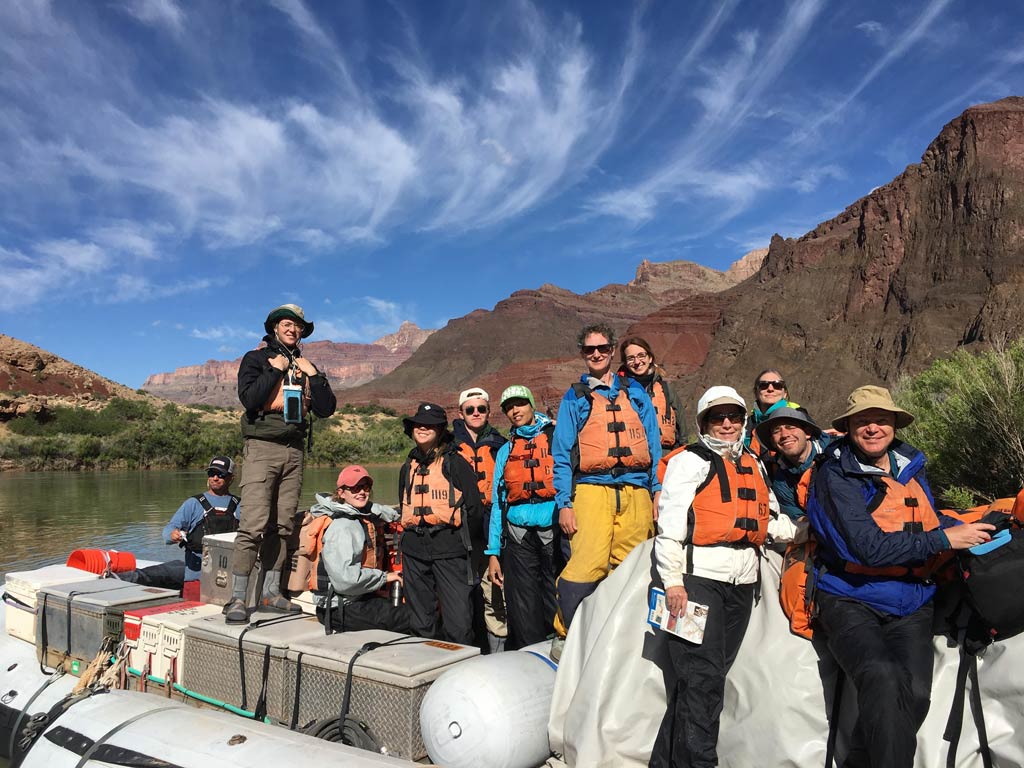
In national discussions surrounding water allocations, a wave of polarized discourse threatens to sweep us away—power players and mass demographics receive the most significant exposure, while the voices of the historically marginalized are washed out of public debate. For example, while the Supreme Court acknowledged the existence of federal reservation water rights in the 1908 case Winters v. United States and established measurements for allocation in Arizona v. California, ongoing legal battles pit disenfranchised natives against grifting opportunism.
One can turn to the Hualapai Tribe, one of several tribes indigenous to the Grand Canyon area, to bear witness to the continued systemic oppression in regard to water rights in this country. The Hualapai reservation follows a 108-mile stretch of prairies and mountains along the Colorado River. And while the tribe of roughly 2,300 members seems to thrive superficially, their reality is of a suffering community, historically plagued by colonialist mistreatment. Under U.S. governance, the Fort Mohave Cavalry were dispatched in 1865 to subdue the tribe and defend infringing gold prospectors, killing off one-third of the Hualapai population. The remainder were deported to unsuitable land in 1874, where they suffered starvation and disease before being moved to a diminutive reservation in 1883.
Today, historical injustice toward Native Americans remains unaddressed. Native public education in Arizona continues to be problematically underfunded, roughly a third of the Hualapai workforce is unemployed, and over 60% have income levels 200% below the federal poverty line. Historically, the river has supplied the Hualapai with free medicinal herbs, food, and a spiritual center. During my time in Tulane’s Grand Canyon Colloquium, we learned that the Hualapai utilized “cotton” from the brownfoot plant as a natural gauze, the Datura flower as a painkiller, and subsisted on a diet of the “Three Sisters” (corn, squash, and beans). The tribe believes that all the natural elements form a spiritual, interdependent network, ensuring a resource policy of respect and restraint.
Understanding the nation’s profound relationship with the environment, it becomes clear that inadequate allocation of water rights for the Hualapai will have decimating consequences—water is critical in sustaining the population’s economy and health. Average precipitation on the reservation is a sparse 279 millimeters per year, and in 2007, locals noted that drought periods last anywhere from 5 to 15 years. In 2001, there was an estimated 20-30% reduction in cattle herds due to drought, growing into a 1.6-million-dollar loss by 2007. River tourism was likewise affected over the same period. The tribe has thus requested a water rights resettlement, which cannot be viewed merely as a handout. From 2003-2007, the tribe invested over 1.4 million dollars into low-usage amenities and refurbishing local water sources. They have also purchased water from surrounding areas to meet annual need. Yet, drought conditions are worsening, and water spending is financially unsustainable.
The Hualapai Tribe’s water rights resettlement is one of few pieces of Arizona legislation with universal political backing. In 2017, Senators John McCain and Jeff Flake introduced Bill S.1770 to the Senate. The legislation states that the Hualapai Reservation would receive 4,000 acre-feet of water per year, along with initiating construction on a 173-million-dollar pipeline from the Colorado River to Peach Springs, Arizona. The project would create 10,000 jobs, 1.5 billion dollars in federal tax revenue, and 9.3 billion dollars in GDP growth. Yet, S.1770 has stalled repeatedly, and while the tribe is hopeful, the future looks grim.
It seems we have reached an impasse; the Lockean social contract we imposed on the nation has been reneged on the basis of bigotry, apathy, and greed. We have not shared the table with our regional predecessors, who accepted us willingly into their spiritual network of life. Instead, we have plucked their plate clean of resources, claiming racialized manifest destiny. By ending this drought of honor and empathy, human life has the potential to thrive once again in the ecosystem of our greatest national treasure.
Grand Canyon Colloquium
For 45 years, the Departments of Anthropology, Ecology & Evolutionary Biology, and Earth & Environmental Sciences have come together to offer the “Grand Canyon Colloquium.” Led by professors Judith Maxwell, Donata Henry, and Stephen Nelson, the course meets twice a week throughout the spring semester and concludes with a 188-mile, seven-day adventure down the Colorado River, where students explore the geology, biology, history, and anthropology of the Southwest.


